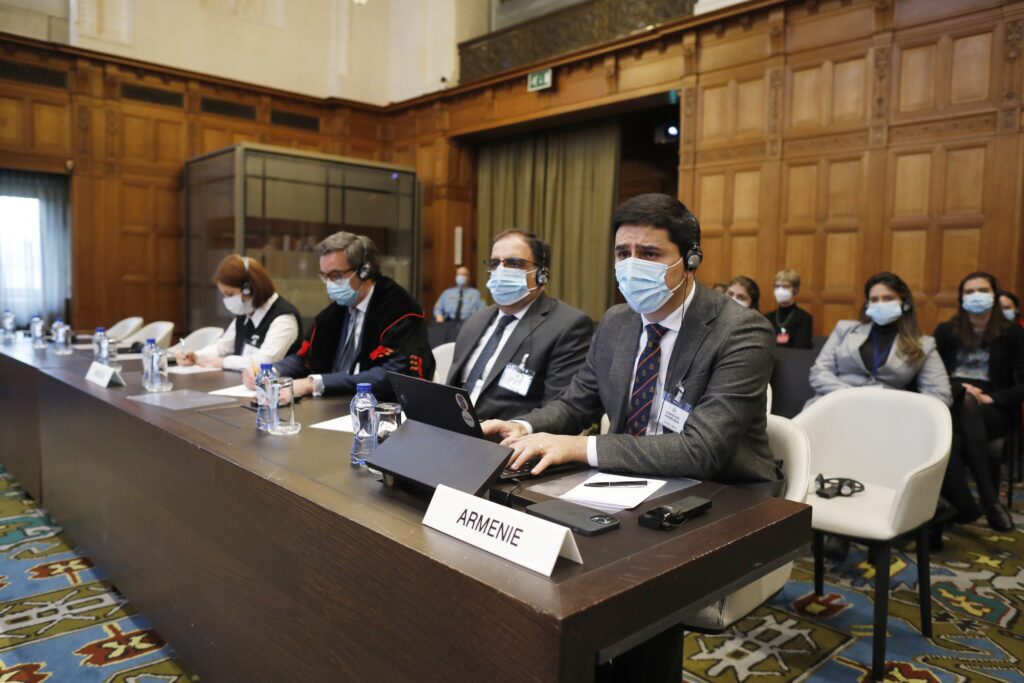In an interview with the website of the Strategic Council on Foreign Relations, Dr. Gholamreza Khaji, referred to the judgment of the Court of Justice (The Hague) regarding the necessity of reopening the Lachin Corridor and facilitating the passage of its residents towards Armenia, saying: According to the judgment of the court, which is an important judicial institution of the United Nations, the Lachin route should be reopened by the Republic of Azerbaijan, in accordance with its obligations and based on the international convention (elimination of all forms of racial discrimination), and the possibility of free passage should be provided, while in that verdict, reference has been made to the conditions that Baku has created with shortage of food, medicine and other medical equipment and it has been pointed out that the type of the vote is binding and mandatory.
He stated that, contrary to Armenia’s claim, The Hague voted that such restrictions had not been organized, adding: After the verdict was issued, Pashinyan asked the government of the Republic of Azerbaijan, as the first step, initiate action against the environmental activists who are accused of blocking the roads and ask them to reopen the corridor.
The university professor, recalling that the tripartite ceasefire agreement that ended the 2020 Karabakh war, obliged the Republic of Azerbaijan to guarantee the safety of the traffic of citizens, vehicles and goods along the Lachin corridor in both directions, adding: Armenia called for the dispatch of international fact-finding team to the blocked corridor. The verdicts of The Hague are based on the opinion of the experts, and Armenia has also sent all its documents to the court. By examining the documents, The Hague has come to the conclusion that the remarks of the Baku authorities about the opening of the Lachin corridor and lack of restrictions for the residents of the area are not true and issued a verdict in favor of Armenia.
Khaji said: Armenia wanted immediate reopening of Lachin corridor to all people from Baku, but in this case, the International Court of Justice did not consider Armenia’s request and issued a different verdict, according to which the passage of people, goods and also vehicles should be within jurisdiction of the Republic of Azerbaijan.
The professor of international law pointed out that Yerevan had submitted a 6,000-page complaint against Baku to the International Court of Justice, which included actions in line with racial discrimination and falsification of history, and continued: In addition, during this period the International Committee of the Red Cross, by entering into the solution of the problems of the residents of the Karabakh region, has provided many assistances to solve the problems caused by the closure of the Lachin corridor and has published reports on the humanitarian crisis created in this regard.
Saying that Baku also asked Armenia to stop mining from the territory of the Republic of Azerbaijan and clarify the location of the mines buried in the past years, he noted: After the court verdict, the media of the Republic of Azerbaijan announced the conditions have been provided for the unhindered passage of vehicles belonging to Russian peacekeeping forces and vehicles carrying citizens and civilian cargo on the Lachin-Khankandi road, and the free passage of civilian vehicles continues on that route, but no one is allowed to transfer military items and minerals excavated in the areas under the temporary control of the Russian peacekeeping forces.
He added: With the strong verdict of The Hague, international and public opinion pressure has been created against the Republic of Azerbaijan to open the Lachin corridor, but in any case, Baku is supported by its transregional allies who also have veto rights in the Security Council and, regarding the stopping of the pressures on Armenia in this direction, there are still some doubts. As we have seen in some cases, countries have vetoed the decision of The Hague and made it ineffective in the Security Council. However, countries and public opinion should increase the pressure on the Republic of Azerbaijan to fulfill its obligations or face the consequences of its actions.
The expert on international law, saying that the legal disputes between the parties started after the end of the second Karabakh war, and before that both countries filed lawsuits against each other in court, accusing each other of violating the convention and of racial discrimination and in one of the cases, the court ruled in favor of the Republic of Azerbaijan, added: In the recent petition to the International Court of Justice, two of their three requests were rejected. The Republic of Azerbaijan and Armenia have mutual claims in the International Court of Justice, and dealing with those cases has a long process that may take years.
The university professor emphasized: The Republic of Azerbaijan recently disrupted the operation of the only gas transmission pipeline from Armenia to the Armenian population part of “Nagorno-Karabakh” and has repeatedly created problems for the residents of that region in their gas supply. One of the motivations for closing the Lachin corridor by the Republic of Azerbaijan is the pressure on Armenia to agree with the “Zangezur Corridor”. Such measures show that Baku will not end the pressure on the residents of those areas.
Saying that Baku has committed many violations regarding extraction of oil in the Caspian Sea, but hopes for the support of Western countries, Khaji added: What the Republic of Azerbaijan is pursuing in Karabakh, similar to other violations of the country, is included in file of its international policies.










0 Comments